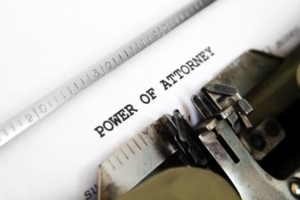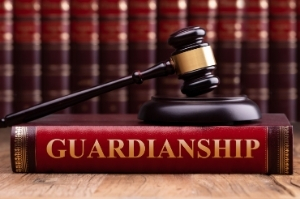
Notice: Please note that Rebeccah Beller is a Florida attorney specializing in guardianship matters in the state of Florida. Our legal team only handles guardianships within Florida and cannot provide assistance for cases outside of this jurisdiction.
What Is Guardianship?
Guardianship refers to a legal relationship in which one person is given the legal ability to act on another’s behalf. Guardianship can serve several purposes, including:
- The right to act on behalf of a minor child;
- The right to act on behalf of an incapacitated adult; or
- The right to act on behalf of a person with developmental disabilities.
In the estate planning context, guardianship most often involves planning for the possibility of unexpected incapacitation. In this scenario, the person obtaining the right to act on behalf of the other person is referred to as the “guardian,” and the incapacitated person is referred to as the “ward.”
Courts take Florida guardianship petitions very seriously, as appointing a guardian significantly interferes with the ward’s rights. Thus, a court will hold a hearing to determine whether guardianship is necessary. Before holding the hearing, the court assembles a team of three people, including medical professionals or other experts, who will assess the need for a guardianship petition. The team performs a physical examination, a mental health examination, and a functional assessment to determine the extent of the ward’s abilities and assess whether guardianship is necessary. The court will also appoint a lawyer to represent the interests of the ward. However, the ward can use their own lawyer, if they choose to do so.
At the end of the hearing, the judge will hear from the team of experts. If the experts agree that the ward is not incapacitated, the court will dismiss the petition. However, if the team agrees that the ward is incapacitated on some level, the court will determine the extent of the guardianship and then appoint a guardian. However, a court may opt to use less restrictive means, if they are available.
Florida guardianship petitions are also publicly available. Thus, on top of the challenges involved with getting a petition approved, there are also privacy concerns. For many, using a power of attorney document is preferable, as it accomplishes the same things as a guardianship petition but maintains a family’s privacy.
What Is a Power of Attorney?
If the goal is to provide another person with the right to make decisions on your behalf, a power of attorney document may be the best option. A power of attorney is a legal document that grants another the ability to make legal decisions on behalf of the drafter. The person writing up the document is referred to as the principal, and the person given the right to make decisions on their behalf is referred to as the agent. Any competent adult can be an agent. A power of attorney may allow the agent to open or close accounts on behalf of the principal, purchase or sell property, or sign a contract. If a power of attorney is in place, it may make the guardianship process unnecessary. However, given the rights granted to an agent, individuals should select trustworthy, responsible agents.
A power of attorney can either be “general,” meaning it provides the agent very broad powers, or “limited.” The scope of the power delegated to the agent is up to the principal and is outlined in the power of attorney document. Generally, a power of attorney terminates if the principal becomes incapacitated. However, a power of attorney may also be “durable,” meaning that it survives the principal’s incapacitation. Durable powers of attorney are the most common because they provide the greatest flexibility in the estate planning context.
Of course, the issue with a power of attorney is that it must be created while the drafter is competent. Under Florida law, a power of attorney must be signed by the principal in front of a notary and two witnesses. Thus, powers of attorney are used primarily for planning purposes, whereas guardianship petitions are necessary once someone becomes incapacitated.
Power of Attorney Versus Guardianship

Of course, the biggest limitation of powers of attorney is the fact that these documents must be drafted before they are needed. Once someone is incapacitated, they are not likely competent to sign a power of attorney. Thus, it is crucial for individuals to take action in advance when they want to give loved ones the right to act on their behalf, rather than wait until the need arises.
Reach Out to a Dedicated Florida Estate Planning Legal Team Today
If you have questions about the Florida guardianship process and whether a power of attorney may be more appropriate, reach out to the knowledgeable estate planning legal team at Beller Law, P.L. At our Jacksonville trusts and estate law firm, we have helped countless clients with their complex estate planning needs for over 30 years. We are skilled problem solvers who can help you devise creative solutions to effectuate your wishes, whatever they may be. Regardless of the estate planning issues that your family is dealing with, our lawyer can help. To learn more, and to discuss your situation with one of our compassionate lawyer today, give us a call or you can reach us through our online form.
